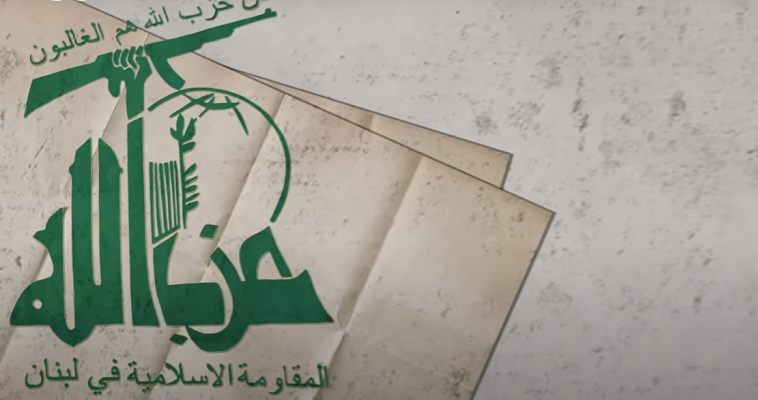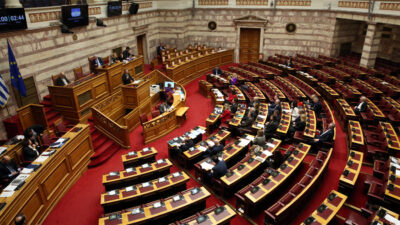Giorgos Lykokapis: Is the Israel-Hezbollah war related to the explosion in Beirut?
06/08/2020
Τhe deadly explosions that shook Beirut, once the “Paris of the Middle East”, reminded some of the days of the Israel-Hezbollah war and the bloody civil war. Although the official announcements refer to criminal negligence, as the explosions were caused in a warehouse where 2750 tons of ammonia nitrate were stored unguarded, there are still many questions about the incident.
The US president publicly expressed his skepticism about the version of the accident, talking about a “bomb blast” and a “horrible attack” (but without attributing it to anyone). What is certain is that in the first hours that followed the explosion, the minds of many went to two “key suspects”, Israel and Hezbollah, the pro-Iranian Shiite organization in Lebanon.
It is no coincidence that both Israel and Hezbollah were quick to declare that they were not involved in the blast. It is worth remembering that this was not the first explosion in recent years in Beirut. In July 2015, a deadly bombing took place on the south side of the Lebanese capital, killing and injuring dozens.
Islamic State claimed responsibility for that attack, which took place in a Hezbollah stronghold. It was an attempt by the jihadists to transfer the sectarian Sunni-Shiite confrontation inside Lebanon. Tensions had previously escalated between Israel and Hezbollah following a mysterious incident on the Blue Line on the two countries’ borders.
The tension with Israel
Tel Aviv says it thwarted an attempted attack by militants, with Hezbollah categorically denying any involvement. Recently, Israel has intensified pressure on the Iranian presence in Syria, with airstrikes against Hezbollah-held positions, while at the same time there are “mysterious” fires in Iran’s industrial facilities.
But since the 2006 war, Hezbollah has taken an extremely moderate stance against Israel. Although the organization has sided with Assad’s army since the start of the Syrian civil war, it has avoided provoking war against the Jewish state. Exceptions are some borderline incidents that occur from time to time, often of limited severity.
As for Israel, it may raid Hezbollah camps in Syria, but it avoids blows to the organisation’s headquarters in Lebanon. Memories of the failed 2006 war, when Israel attempted to overthrow the militant group, are still strong in Tel Aviv. Israel seems obliged to partially tolerate Hezbollah, which it accuses of keeping Lebanon”hostage”.
This claim has a dose of truth, as the organization has weapons depots and camps in many parts of the country, while no one controls its weapons (which is much more powerful than the Lebanese army itself). But the country’s army, which is dominated by Christian officers, is collaborating with the Shiite organization, to the point that the Israelis now call it a “Hezbollah annex”!
The many faces of Hezbollah
In the complex Lebanese reality, Hezbollah now has many faces. It is a political party, as it participates in the Lebanese Cooperation Government. It is a national liberation movement, as its action in the 1980s was directed against the Israeli occupation forces. But it is also the Shiite paramilitary organization, Iran’s armed arm, with proven involvement in terrorist acts.
It is characteristic that this multiple identity of Hezbollah influences its political line, which often seems contradictory. It had condemned recent protests in Lebanon, even lined up members to clash with protesters. On the other hand, a “rebellion” has recently begun within the Lebanese government, against its planned appeal to the IMF, as the country is in a state of bankruptcy.
Hezbollah, however, does not only dominate in the military field. The political part of the organization is also famous for the efficiency of its social services, which go beyond those of the official state. Hezbollah had mobilized thousands of its members to tackle the coronavirus, and is now assisting rescue teams.
However, the timing of the explosion in Beirut took place was at least strange. The International Court of Justice is expected to rule in a few days on the assassination of former Prime Minister Saad Hariri in 2005, an act attributed to members of Hezbollah. This assassination was the trigger for the withdrawal of the Syrian occupation forces and the subsequent Israeli invasion (which was crowned with failure).
History of murders and conspiracies
Lebanon’s recent history is an endless history of conspiracies, terrorist attacks and political assassinations. Among the victims of the blast in Beirut is the general secretary of the Kataeb party, the Lebanese Christian Maronite party. It is the political wing of the Phalangists, the old death squads of Bashir Jemayel.
The Phalangists are charged with many war crimes during the dark years of the Lebanese civil war. Jemayel, an ally of Israel, was assassinated by a bomb attack in 1982, shortly after the horrific massacre of his followers in the Palestinian refugee camps of Sabra and Satila. But the Shiites abstained from the first phase of the civil war of the 1970s, which took place mainly between the Maronites, the Palestinian Fedayeen and their Lebanese (Arab) supporters.
This is one of the reasons that explains Hezbollah’s alliance with a significant part of the Maronite community and the Maronite president Michel Aoun himself. But now the organization is not “beyond reproach” either. As it seeks power with the “kleptocratic” parties (as it calls them), it too has found itself in the crosshairs of Lebanese society. If its domestic opponents attribute to it (albeit unintentionally) responsibility for the explosion, the climate will certainly intensify.
However, despite their war against Iran, the US and Israel have shown that they understand the fragile balance in Lebanon. It is characteristic that they avoided accusations against Hezbollah. The organization is maintaining “radio silence”on the issue, as we have not yet seen any new announcement, or a speech by its leader Hassan Nasrallah. So far the parties involved seem to be playing a balancing game, refusing to put the deadly explosion in the “frame” of the confrontation between them.





